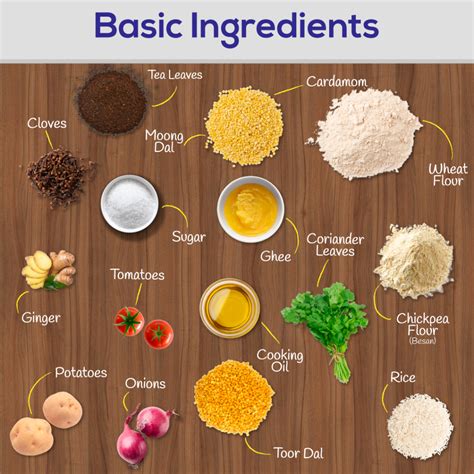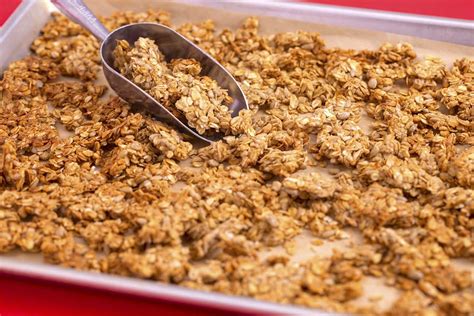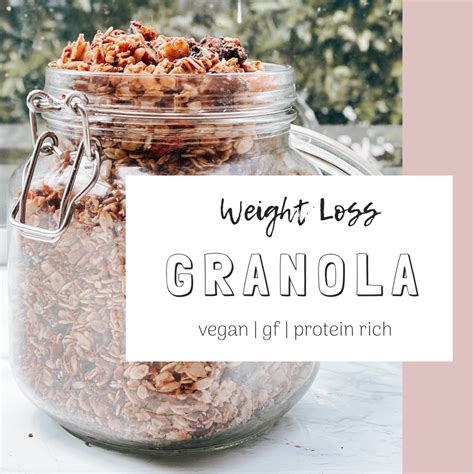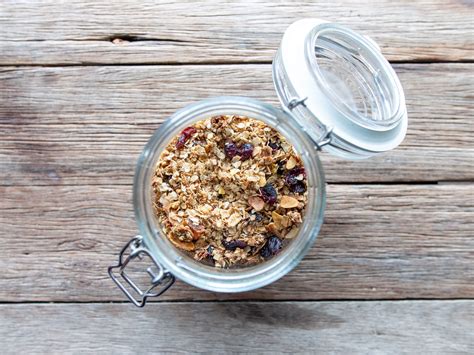Intro
Discover the truth about granolas health benefits, exploring its nutritional value, calorie content, and sugar levels to determine if its a healthy snack option, considering whole grains, fiber, and protein.
Granola has long been perceived as a healthy food option, often associated with a wholesome, natural diet. It's a popular choice for breakfast, snacking, or as a topping for yogurt or oatmeal. However, the question remains: is granola really healthy? To answer this, let's delve into the world of granola, exploring its history, ingredients, and nutritional benefits.
The concept of granola dates back to the late 19th century, when Dr. James Caleb Jackson created a breakfast food called "Granula." This early version of granola was made from graham flour that was baked into a crisp, then broken into pieces. Over time, the recipe evolved, and granola became a staple in many health-conscious households. Today, granola is available in various flavors and textures, making it a versatile food option.
Despite its healthy reputation, granola can be a complex food product. Some store-bought granolas are highly processed, containing added sugars, artificial flavorings, and unhealthy fats. On the other hand, homemade granola or certain store-bought brands can be a nutritious choice, rich in whole grains, nuts, and seeds. To truly understand the health benefits of granola, it's essential to examine its ingredients and nutritional content.
Ingredients and Nutritional Content

A typical granola recipe includes rolled oats, nuts (such as almonds or walnuts), seeds (like sunflower or pumpkin), and sometimes dried fruits. These ingredients provide a range of essential nutrients, including fiber, protein, and healthy fats. However, many commercial granolas contain added ingredients that can detract from their nutritional value. Some common additives include:
- Refined sugars: Many granolas contain high amounts of added sugars, which can increase calorie intake and contribute to various health problems.
- Artificial flavorings: Some granolas may include artificial flavorings or preservatives, which can be detrimental to overall health.
- Unhealthy fats: Certain granolas may contain partially hydrogenated oils or other unhealthy fats, which can increase the risk of heart disease.
Nutritional Benefits
Despite these potential drawbacks, granola can be a nutritious food option when made with wholesome ingredients. Some of the key nutritional benefits of granola include:- High fiber content: Granola is a good source of dietary fiber, which can help promote digestive health and support healthy blood sugar levels.
- Protein content: Many granolas contain nuts and seeds, which are rich in protein and can help support muscle growth and repair.
- Healthy fats: Granola can be a good source of healthy fats, such as those found in nuts and seeds, which can help support heart health and provide sustained energy.
Health Benefits of Granola

When consumed in moderation, granola can provide several health benefits, including:
- Weight management: Granola can be a satisfying snack, helping to curb hunger and support weight loss efforts.
- Improved digestion: The high fiber content in granola can help promote regular bowel movements and support healthy gut bacteria.
- Reduced inflammation: Some granolas contain anti-inflammatory compounds, such as those found in nuts and seeds, which can help reduce inflammation and improve overall health.
Potential Drawbacks
While granola can be a healthy food option, there are some potential drawbacks to consider:- Calorie density: Granola is often high in calories, making it easy to overconsume and potentially lead to weight gain.
- Added sugars: Many commercial granolas contain high amounts of added sugars, which can contribute to a range of health problems.
- Allergens: Some granolas may contain common allergens, such as nuts or soy, which can be problematic for individuals with food allergies.
Choosing a Healthy Granola

To reap the health benefits of granola, it's essential to choose a product that is made with wholesome ingredients and is low in added sugars and unhealthy fats. Some tips for selecting a healthy granola include:
- Reading labels: Check the ingredient list and nutrition label to ensure the granola is made with whole grains, nuts, and seeds, and is low in added sugars and unhealthy fats.
- Choosing homemade: Consider making your own granola at home, using a recipe that includes wholesome ingredients and minimal added sugars.
- Opting for low-sugar options: Look for granolas that are labeled as "low-sugar" or "unsweetened" to reduce your intake of added sugars.
DIY Granola Recipes
Making your own granola at home can be a fun and rewarding experience. Here are some tips for creating your own healthy granola recipe:- Start with whole grains: Use rolled oats, quinoa, or other whole grains as the base for your granola.
- Add nuts and seeds: Include a variety of nuts and seeds, such as almonds, walnuts, sunflower seeds, and pumpkin seeds, to provide a boost of protein and healthy fats.
- Use natural sweeteners: Instead of adding refined sugars, try using natural sweeteners like honey, maple syrup, or dried fruits to add sweetness to your granola.
Granola and Weight Management

Granola can be a useful tool for weight management, providing a satisfying and filling snack that can help curb hunger and support weight loss efforts. Some tips for using granola as part of a weight management plan include:
- Portion control: Be mindful of your granola intake, as it can be high in calories. Aim for a serving size of about 1/4 cup or 1 ounce.
- Pairing with protein: Combine granola with a source of protein, such as Greek yogurt or nuts, to help keep you full and satisfied.
- Choosing low-calorie options: Opt for granolas that are low in added sugars and unhealthy fats, and made with wholesome ingredients.
Granola and Digestive Health
Granola can also play a role in supporting digestive health, thanks to its high fiber content and potential prebiotic properties. Some ways that granola can support digestive health include:- Promoting regular bowel movements: The fiber in granola can help promote regular bowel movements and prevent constipation.
- Supporting healthy gut bacteria: Some granolas contain prebiotic fibers, which can help feed the good bacteria in the gut and support a healthy gut microbiome.
Granola and Inflammation

Some granolas may contain anti-inflammatory compounds, such as those found in nuts and seeds, which can help reduce inflammation and improve overall health. Some ways that granola can help reduce inflammation include:
- Providing antioxidant-rich ingredients: Many granolas contain antioxidant-rich ingredients, such as nuts and seeds, which can help reduce oxidative stress and inflammation.
- Supporting healthy gut bacteria: A healthy gut microbiome is essential for reducing inflammation and promoting overall health. Some granolas contain prebiotic fibers, which can help support the growth of beneficial gut bacteria.
Granola and Heart Health
Granola can also play a role in supporting heart health, thanks to its potential to help lower cholesterol levels and reduce inflammation. Some ways that granola can support heart health include:- Providing soluble fiber: The soluble fiber in granola can help lower cholesterol levels and reduce the risk of heart disease.
- Supporting healthy blood sugar levels: The fiber and protein in granola can help support healthy blood sugar levels and reduce the risk of developing type 2 diabetes.
Conclusion and Final Thoughts

In conclusion, granola can be a healthy food option when made with wholesome ingredients and consumed in moderation. By choosing a granola that is low in added sugars and unhealthy fats, and made with whole grains, nuts, and seeds, you can reap the nutritional benefits of this popular breakfast food. Whether you're looking to support weight management, digestive health, or heart health, granola can be a useful tool in your overall health and wellness plan.
We invite you to share your thoughts on granola and its potential health benefits. Have you tried making your own granola at home? What are some of your favorite ingredients to include? Share your experiences and tips in the comments below, and don't forget to share this article with your friends and family who may be interested in learning more about the health benefits of granola.
Is granola a good source of protein?
+Yes, granola can be a good source of protein, especially if it contains nuts and seeds. However, the protein content can vary depending on the ingredients and brand.
Can I make my own granola at home?
+Yes, making your own granola at home is easy and fun. Simply mix together your desired ingredients, such as rolled oats, nuts, and seeds, and bake until crispy.
Is granola suitable for people with gluten intolerance?
+It depends on the ingredients used. Some granolas may contain gluten due to the presence of wheat or barley. However, many gluten-free granola options are available, made with ingredients like rice, corn, or quinoa.
